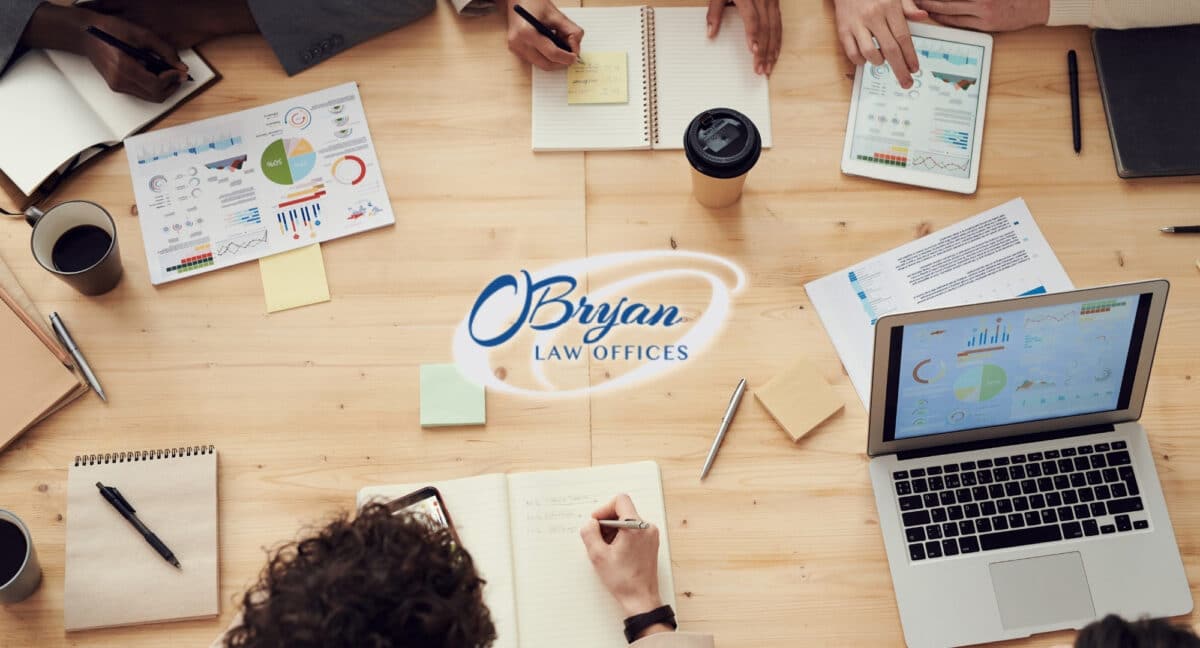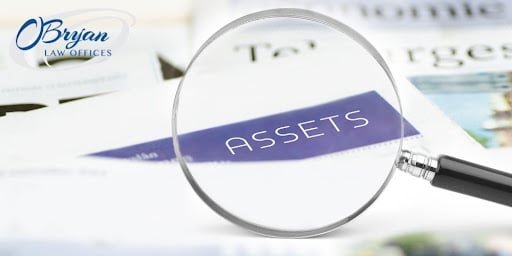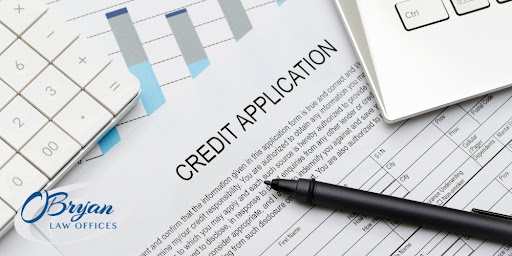341 Meeting of Creditors

341 Meeting of Creditors

For many bankrupt people, attending a 341 meeting of creditors is generally a light at the end of the tunnel. This meeting may be intimidating, but it’s usually quick and painless, especially with a bankruptcy attorney at your side. Just 60 days after your 341 meeting, you may receive your bankruptcy discharge which signifies you’re on your way to a debt-free life. Working with our Louisville bankruptcy attorneys can help you be as prepared as possible for your creditors meeting.
For more information on what to do during and after a bankruptcy filing, call O’Bryan Law Offices at 502-339-0222. We offer assistance for bankruptcy filings of all types, including Chapter 7, Chapter 13, and even Chapter 11 bankruptcy. A Kentucky bankruptcy lawyer with our firm will ensure that your bankruptcy proceeding goes as smoothly as possible. When you establish an attorney-client relationship with us, any sensitive or confidential information you disclose will remain confidential.
What Is a 341 Meeting of Creditors?
A 341 meeting of creditors is basically what it sounds like. A bankruptcy filer will meet with all their creditors as required by Section 341 of the Bankruptcy Code. For Chapters 7 and 13, a bankruptcy trustee who’s been assigned to your case will lead the meeting. The trustee’s job during this meeting is to:
- Prove your identity
- Make sure that your annual income is accurate
- Look for other sources of income that weren’t previously documented so the creditors can receive as much money as possible.
- Review all paperwork
- Evaluate all assets and property
- Search for possible bankruptcy fraud
Although this meeting is often called the 341 meeting of creditors, it’s important to note that while your bankruptcy attorney and trustee will definitely be with you, the creditors most likely won’t attend. Additionally, it’s important to note that this is merely a meeting, not a hearing like in a bankruptcy court. Therefore, a bankruptcy judge won’t be there, and all decisions made during the meeting won’t be legally binding. It is simply one step in the bankruptcy process.
Lastly, while this meeting sounds daunting, it’s generally very quick. Many different 341 meetings can happen within an hour. It’s understandable to feel nervous before your meeting of creditors or at any point after you submit your bankruptcy petition. However, working with an experienced bankruptcy law firm can help you achieve bankruptcy relief as quickly and painlessly as possible.
What Happens During a 341 Meeting?

Approximately six weeks after you file bankruptcy, your meeting of creditors will take place. During the 341 meeting of creditors, your United States trustee and your creditors will ask various questions about your bankruptcy petition. Although the creditors meeting does not involve a court hearing or a judge, you will still answer these questions under oath.
Basically, the meeting of creditors serves to verify that the information in your bankruptcy papers is completely accurate. You must also prove that you are who you say you are. In order to prove your identity, you’ll need two forms of identification.
What Does the Trustee Look for in Bank Statements?
One of the more important documents that bankruptcy trustees look at is the bank statements of the bankruptcy filer. The trustee will look at and compare your bank statements to your bankruptcy forms. Their goal is to verify that the expenses you listed on your forms match what your bank accounts show.
They will also look at how much money you had in your accounts before you filed bankruptcy. This actually helps bankruptcy filers protect their money with any exemptions available to them. If you’re unsure of whether or not you qualify for certain exemptions, we recommend speaking with an attorney at a debt relief agency.
Questions That the Bankruptcy Trustee Might Ask You
Having an idea of the questions you may face during a 341 meeting may help you feel more at ease. Your bankruptcy trustee may ask you:
- Do you own any property or real estate?
- If you don’t already own property or real estate, do you have an interest in doing so?
- Have you completed any property transactions or given any property away in the last year?
- Does anyone hold property belonging to you?
- Have you filed a claim against a person or a business?
- Have you filed a lawsuit in which you are the plaintiff?
- Do you have any large medical bills from an illness or an injury?
- If someone in your life dies, will you receive any life insurance or inheritance money?
- Does anyone owe you money?
- Have you paid anyone or bought anything worth more than $600 in the last year?
- Were you entitled to a tax refund from the federal or state government when you filed for bankruptcy?
- Do you expect to receive any property or money due to an uncontested divorce?
- Do you have to pay child support or alimony?
- Have you won any lottery money recently?
- Do you own a car?
- Have you been financially involved in any business over the last 6 years?
- Did you list all your sources of income?
- When you filed for bankruptcy, did you have any spare cash, U.S. savings bonds, stocks, Certificates of Deposits, or a safe deposit box in your name?
Some of these questions will attempt to uncover whether or not you intend to abuse bankruptcy laws or whether you’re making improper payments. A common example of bankruptcy law abuse is going on a massive shopping spree right before filing for bankruptcy. If it looks like you bought very expensive items within a certain time frame, trustees may assume that you planned to file for bankruptcy in order to afford these items. Meanwhile, an example of an improper payment would be paying a friend or family member thousands of dollars, leaving you with nothing to pay to creditors.
For these reasons and more, it’s crucial to be as honest as possible during a 341 meeting. Before your questioning, you will certainly have to take an oath to honesty.
What Not To Do at a 341 Meeting

Don’t do these things at a 341 meeting of creditors if you want to have a positive experience:
- Don’t lie to the bankruptcy trustee because it’s considered a criminal offense.
- Avoid hiding assets from your bankruptcy trustee. Remember that any secret vacation home or secret bank account is traceable through technology and documentation. If you’re hiding anything, your bankruptcy trustee will likely find out about it.
- Don’t withhold any information from your bankruptcy trustee. Once again, they will eventually find whatever you’re hiding. Similar to lying during a 341 meeting, withholding or hiding information from your bankruptcy attorney is a criminal offense. An example of withholding information is not documenting an extra stock brokerage account.
Do I Have to Attend a 341 Meeting of Creditors?
In short, yes. Attending the 341 meeting is mandatory for your bankruptcy case. If you miss it, you will risk losing your bankruptcy case altogether. As stated previously, this meeting is generally quick and simple.
341 Meeting for Chapter 7 vs. Chapter 13
341 meetings differ slightly for Chapter 7 bankruptcy and Chapter 13 bankruptcy. A Chapter 7 trustee will sell any assets that you can’t safeguard with a bankruptcy exemption and then distribute the money to creditors. The 341 meeting will generally be scheduled 21 to 40 days after you file for Chapter 7.
Meanwhile, a Chapter 13 trustee will assess the feasibility of your proposed Chapter 13 repayment plan during a 341 meeting. The Chapter 13 trustee will consistently deliver monthly payments to creditors if the judge approves the plan at the confirmation hearing. The 341 meeting will generally be scheduled 21 to 50 days after you file for Chapter 13.
What Questions Can a Creditor Ask in a 341 Meeting?

Ironically enough, not all creditors choose to show up at the 341 meeting of creditors. When they do, however, it’s usually because they suspect something. The best thing to do if a creditor shows up at the 341 meeting is to just tell the truth. After all, you will be under oath. In the rare case that a creditor appears, they might ask you questions about the following topics.
- Your current employment
- Your situation before and after you applied for credit
- Whether or not you thought your finances would improve
- Whether or not you have any property or land tucked away
When a creditor shows up to the meeting, it’s a good idea to have your attorney present. This way, you won’t be manipulated into making statements that can work against you.
What to Bring to the 341 Meeting of Creditors
Before attending the 341 meeting, you need to gather your paperwork for the bankruptcy trustee to review. You should bring:
- A photo ID, such as a driver’s license, a passport, or military ID
- Something that has your social security number, including a social security card or a W2 statement
- Income records
- Tax statements
- Vehicle titles
- Mortgage or rental contracts
- Bankruptcy paperwork that you previously submitted to the court
Lastly, make sure that you don’t bring your phone, computer, or tablet to the 341 meeting.
What Happens After a 341 Meeting?
You’re not completely out of the woods yet after the 341 meeting of creditors. You will still need to do what’s expected of you until your bankruptcy case comes to a close. Here are some things you may have to do after your 341 meeting:
- Give the trustee access to the non-exempt property. Non-exempt property is what you don’t have to keep, so your trustee may sell it and give the money to your creditors.
- Deal with reaffirmed debts, but only if your bankruptcy plan involves agreeing to new debt terms (also called reaffirmation). Basically, you will start making payments on these debts after your 341 meeting. Additionally, you should continue making payments on debts that aren’t impacted by your bankruptcy filing.
- Wait for a bankruptcy discharge or an objection to discharge. This will come approximately 60 days after your 341 meeting. A bankruptcy discharge basically means that you’re debt free and that your case is coming to an end. Meanwhile, an objection to discharge indicates that you lied about something in your meeting or that you failed to qualify for a discharge under the bankruptcy code.
- Attend a debt counseling course with a bankruptcy attorney at O’Bryan Law Offices. This course will help you stay debt free by teaching you how to manage your finances responsibly. The ultimate goal of a Kentucky debt counseling course is to avoid filing for bankruptcy again in the future.
How Long After 341 Meeting Until I Receive a Discharge?
After filing bankruptcy, you’re likely counting down the days until you receive your discharge. Generally, you can expect to see your discharge around 60 to 90 days after the meeting. However, you could receive it as early as the date of the deadline to object to your discharge. This is the soonest possible date, and you can find it on your Form 309A.
Can You Spend Money After Your 341 Meeting?
Yes. Any money that you make after you file is yours to keep and spend as you like. This is because it isn’t considered part of the bankruptcy estate. You cannot, however, spend any money that is listed in your bankruptcy estate.
Can I Apply for Credit After My 341 Meeting?

Technically, you must receive court approval before applying for new lines of credit while your bankruptcy process is ongoing. However, it’s important to remember that you might not qualify for certain types of credit for a while after you file. Because your credit score takes such a strong hit, you might have to focus on rebuilding your credit score before applying for more credit.
What Happens if a Creditor Objects to the Discharge?
Generally speaking, a creditor will need to file an adversary proceeding against you. This is more or less a lawsuit that your creditor files against you. Once they file the complaint, you and your attorney will have time to respond. You will then undergo the discovery process, present your evidence, and argue your case. If a creditor objects to your discharge, we recommend speaking with your attorney to determine the best course of action.
Call a Bankruptcy Attorney at O’Bryan Law Offices Today
At O’Bryan Law Offices, we put our significant credit and bankruptcy knowledge to work. Whether our clients wish to file for bankruptcy to reorganize their finances or they simply need debt counseling, we can help. A skilled Louisville bankruptcy attorney will guide you through each step of the process, ensuring that you emerge in a better financial position. Call 502-339-0222 to book a free consultation.
